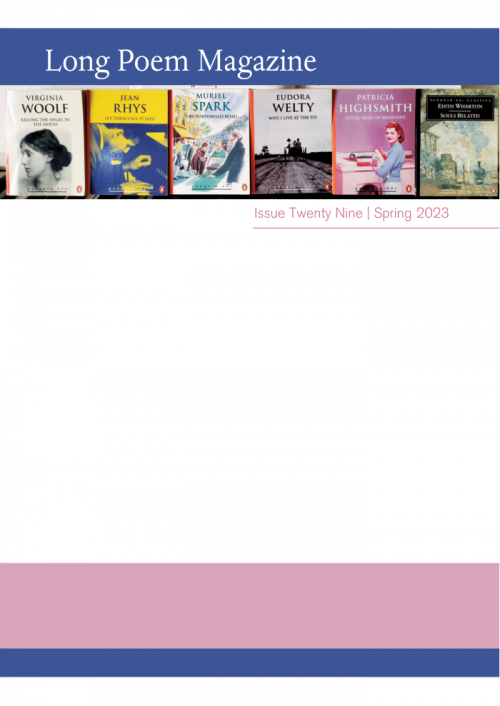Death is forever with us – it creeps in and it won’t go away. In January this year the much admired poet Charles Simic, a writer of mostly short poems, died: ‘How much death works,/No one knows what a long/Day he puts in. . .’ And in January this year I attended a wonderful tribute reading for the launch of Lee Harwood’s posthumous New Collected Poems (Shearsman).
So much to face. It took me many years to address my traumas – the death in a car crash of a beloved uncle – growing up in a Jewish family, my fear of a Nazi (the worst bogeyman in the world), but I didn’t know what a Nazi was. Nobody talked about the war. At school I fell in love with Keats’ poetry and I often visit the house in Hampstead where he lived, see the bed where he slept in illness. In his poem ‘Hectic Fever’ (a term for The White Plague), Alan Morrison quotes Keats: ‘Youth grows pale, & spectre thin, & dies’—/Thus ‘wrote Keats in the spring of 1819’, referencing the ‘ghoulish term’ consumption, and the description of Tuberculosis as ‘A social disease’. In the world today we have war, desperate immigrants fleeing, natural disasters, all causing multiple unnecessary deaths: the extinction of species, extreme poverty, and here in England disease caused by mouldy homes where landlords neglect their duty, children dying from air pollution.
In Norwegian poet Jon Ståle Ritland’s ‘Fata Moranga’, translated by Harry Mann and Vilde Bjerke Torset, ‘every night the edge of the coffin against my forearm . . . an unnamed disease/sucks the light out of life’. For Lucy Hamilton (‘Travelling with the I ‘Ching’ ) her journey through China in 2017 ‘brings to mind figures I glimpsed/from a train tending graves on Tomb Sweeping Day’. Matt Haw’s poem ‘Only grief will bend nature to a will beyond indifference . . .’ is also set in Norway: ‘In the rocky verge between the road & the banks of a fjord, the cold has halted the decomposition of the carcass of a young deer . . . In wind & sleet & the strobing blue lights of emergency vehicles along the road, the dead are here to be catalogued . . . It has been three weeks since the accident and the young man has still not been found …’ In the final stanza, with echoes of Keats (‘no birds sing’), ‘no fowls call’, and the I of the poem desires ‘only my own deep rest.’
We haven’t finished yet. Mary Leader’s persona poem ‘Discourse of Palsies’ introduces us to ‘Crescenzago Smith, once an impecunious would-be screenwriter, now a frugal gray-beard, who receives news of the death of an old friend, Yggdrasil’. Her epigram quotes Melville ‘ . . . when the fires and broils of youth are passed we . . . hold discourse of palsies, hearses, shrouds, and tombs; appoint our undertakers; our mantles gather round us, like to winding-sheets; and every night lie down to die.’
Naomi Foyle’s poem ‘On Telling Gwendy I’m Autistic’ is an elegy for a dear friend: ‘I was determined not to wait until she had died to write a poem in her honour.’
death is squatting on her neck, slowly rifling
her mouth, weeping blood and pus
into her soup: to eat, talk, soon pleasures past.
Yet Gwendy laughs
In the final stanza of MW Bewick’s ‘Nightingales’, ‘The gate is rotten, makes its famous sound and everywhere is muck . . . And people just dissipate, spread out thin. . . . mostly unnamed wage labour, base of a pyramid, smacks of coal and steel, atom bomb, daffodils somewhere in everything, somewhere in the tyred marks of the field . . . Why so many go to not feel dead. Such a dream of nightingales never found.’
Life is ‘The Unknown Condition’, posits the title of Steve Spence’s poem. So cheer up everyone – there are 20 poems for you to read plus an essay on parody and exorcism . . .
Linda Black
